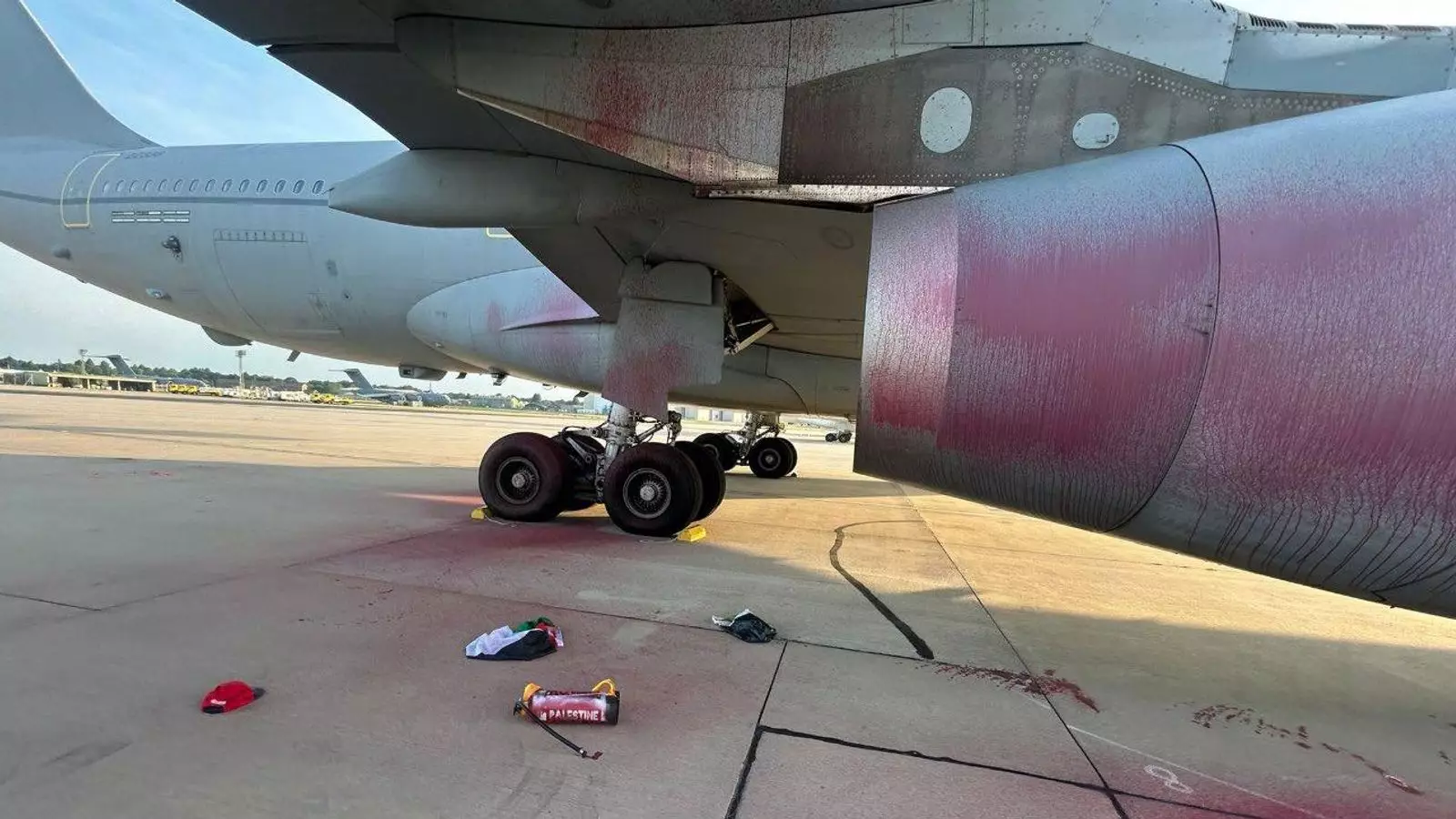In a moment that has sent ripples through the social fabric of dissent in the UK, Home Secretary Yvette Cooper announced the proscription of Palestine Action as a terrorist organization. This decision arose following a high-profile incident at RAF Brize Norton, where members of the activist group allegedly caused extensive damage by breaching security protocols and vandalizing military property. While the government views this act as a criminal offense deserving of severe repercussions, one must consider whether labeling Palestine Action as a terrorist organization is an appropriate response to their actions or simply a knee-jerk reaction intended to stifle dissent.
Saeed Taji Farouky’s outrage at the government’s proclamation of the organization provides a glimpse into a broader critique of the current political climate. He described the proscription as “completely irrational” and asserted that it reflects the government’s deep-seated insecurities. The implication here is not just about safeguarding military installations, but also about controlling the narrative surrounding Palestine Action’s motives and actions. In a democracy, where freedoms of speech and assembly are foundational, this extreme categorization serves as a dangerous precedent.
The Government’s Justification: A Slippery Slope to Censorship
One of the most concerning aspects of Cooper’s announcement is the justification rooted in the notion of “public safety” and “property protection.” By branding Palestine Action as a terrorist group, the Home Office invokes a complex legal framework that could criminalize future protests and dissenting voices. The language of fear used by government officials, including claims of unprecedented attacks on national security, can easily blur the lines between legitimate activism and extremism. The chilling effect of this proscription cannot be overlooked, especially for groups advocating justice, such as those standing in solidarity with Palestinian rights.
The statement, “the right to peaceful protest will remain unaffected,” offers little reassurance in light of the heavy-handed approach to dissent exemplified by police actions at recent protests. Police brutality against demonstrators has raised significant questions about the effectiveness of the Public Order Act and its implications for free expression. When the government actively seeks to control public discourse through labels of terrorism, it lays a perilous foundation for what is ultimately censorship. The experiences of individuals arrested during the protests speak volumes about a police force committed to subduing discomfort rather than safeguarding rights.
The Role of Activism in a Democratic Society
It is imperative to recognize the role of activism as a vital engine for change in any democratic society. Groups like Palestine Action, despite their controversial methods, raise essential questions about human rights and accountability. One must ask: where do we draw the line between acceptable protest and prohibited behavior? Are we willing to sacrifice a critical discourse on issues facing marginalized populations for the sake of political comfort?
Moreover, labeling such groups as terrorist organizations fosters division rather than dialogue. The real challenge lies not in the suppression of dissenting voices, but in addressing the root causes of their outcry. A democratic society should not fear activism but should instead engage in constructive conversations that could lead to impactful change. By ostracizing groups like Palestine Action, the government is sending a clear message that dissent is unwelcome, overriding the values of democracy that it seeks to uphold.
Redirecting Focus: Military Accountability and the Underlying Issues
While the outrage over the Brize Norton incident is certainly justified, we must not lose sight of the larger context that fuels such protests. Discontent with UK foreign policy, especially regarding the treatment of Palestinians, grows amidst a backdrop of systemic injustice. The government’s focus on punitive measures distracts from the urgent need for accountability within military practices and policies that have far-reaching humanitarian implications.
A reallocation of discussion to address these underlying grievances is crucial for healing divisions and fostering understanding. Activists seek justice not for the sake of chaos or destruction, but as a call for awareness about human suffering and the responsibilities of nation-states. By framing these discussions through a terroristic lens, the government fails to grapple with the complexity of international relations and social justice.
As this dialogue unfolds, the real question becomes: how does society want to respond to its dissenters? Do we continue to entrench ourselves in a culture of fear, or do we dare to explore the uncomfortable realities behind activism? Only time will tell if the proscription of Palestine Action will result in silencing voices or if it will inspire new waves of resistance that challenge systemic oppression. Embracing vulnerability in dialogue could be the key to transforming dissent into a constructive force for change.



Leave a Reply